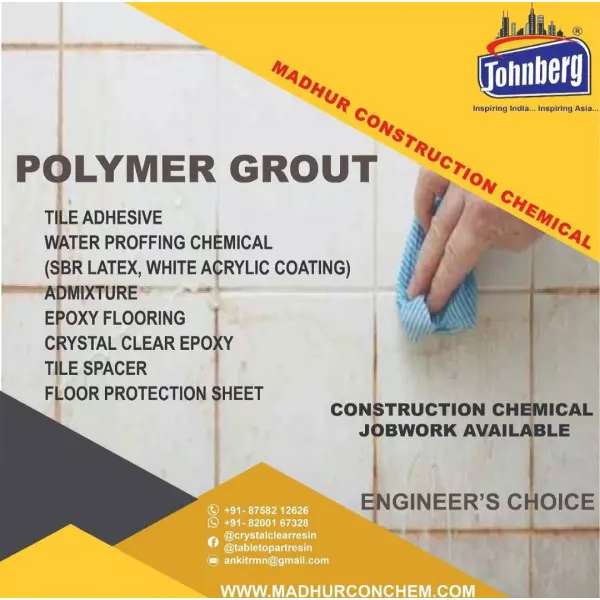Polymer Modified Grout Manufacturers In Punjab
Call Now
WhatsApp
Availability
Eligible Region
Punjab
Category Epoxy Resins
Payment Methods Cash, COD, DirectDebit
Message Now
Details of Polymer Modified Grout
Polymer modified grout is a type of grout that has been enhanced by the addition of polymers to improve its performance properties compared to traditional cement-based grouts. These polymers are typically in the form of latex or other liquid or powder additives. The polymer addition increases adhesion between the grout and the surrounding surfaces such as tiles or concrete.
Offered Product
Polymer Modified Grout
Polymer Modified Grout Is A Type Of Grout That Has Been Enhanced With Synthetic Polymers, Which Improve Its Performance Over Traditional Cement-based Grouts. These Polymers Are Typically Mixed Into The Grout Formula To Provide Superior Strength, Flexibility, And Durability, Making It Ideal For Use In Demanding Environments Where Traditional Grout May Not Perform As Well.Key Features Of Polymer Modified Grout:Increased Strength: The Addition Of Polymers Enhances The Bonding Strength Of Th... Read moreOur Products
Latest Updates
Request a Call Back!

